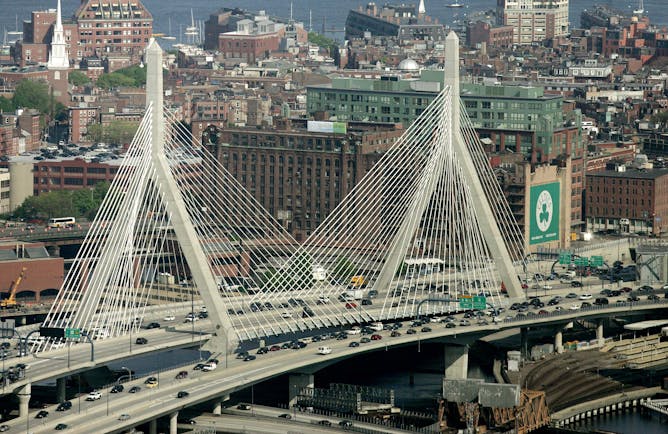|
|
|
|
House Speaker Nancy Pelosi is teeing up votes on a number of big issues this week, including a $1 trillion bipartisan infrastructure bill and possibly up to $3.5 trillion in spending on a wide range of areas from climate change to child care. Both bills, which still face uphill battles before becoming law, would remake broad swaths of the U.S. economy.
They would also become irresistible targets for fraudsters, explains Jetson Leder-Luis, who studies fraud in public spending at Boston University. That’s what happened with the trillions spent to support the economy during the pandemic. It’s estimated that a program intended to support small businesses, for example, may have lost 10% of the $792 billion doled out to fraud, he adds.
“Research shows there are measures that can effectively fight fraud in government spending, like increased government anti-fraud lawsuits,” Leder-Luis writes. “The problem is lawmakers don’t always make preventing fraud a priority.”
Also today:
Lastly, we’re wrapping up our back-to-school fundraising campaign today to support the work we do in creating and distributing fact-based, timely and interesting journalism. If you haven’t yet given, we would appreciate if you would become a sustaining donor or give a one-time gift. Thank you!
|

|
Bryan Keogh
Senior Editor, Economy + Business
|
|
|
|

The Leonard P. Zakim Bunker Hill Bridge was part of Boston’s Big Dig, which was infamous for its cost overruns.
AP Photo/Steven Senne
Jetson Leder-Luis, Boston University
Congress is inching closer to passing as much as $4.5 trillion in new infrastructure and social spending, which would be an attractive target for fraudsters.
|
Ethics + Religion
|
-
Jaco J. Hamman, Vanderbilt University
COVID-19 has intensified wanderlust – but also the need for mindful, ethical travel.
|
|
Science + Technology
|
-
Bennett Bertenthal, Indiana University; Apu Kapadia, Indiana University; Kurt Hugenberg, Indiana University
Studies about warning labels aimed at protecting privacy raise red flags about Apple’s efforts to keep kids from sharing sexually explicit material.
-
Linda Charmaraman, Wellesley College
While online communities may not fully address the isolation LGBTQ youth face in-person, they can serve as an important source of social support and a springboard for civic engagement.
|
|
Environment + Energy
|
-
Michael Oppenheimer, Princeton University
Natural gas was once widely seen as a bridge fuel to renewable energy. But the industry’s methane leaks make it a larger global warming threat than people realized.
|
|
Politics + Society
|
-
Justin Nix, University of Nebraska Omaha
FBI statistics recorded a 30% rise in homicides in 2020. A criminologist helps break down what was behind the spike.
|
|
Health
|
-
Richard Bloomer, University of Memphis
A growing body of research shows that nutrition, sleep, exercise and a host of other lifestyle choices can help optimize the immune system. But they are no substitute for life-saving vaccines.
|
|
Arts + Culture
|
-
Peggy Cunningham, Dalhousie University; Minette Drumwright, The University of Texas at Austin College of Liberal Arts
The former R&B star faces the possibility of life in prison after being found guilty of racketeering and sex trafficking. The trial exposed the role of enablers within his inner circle, too.
-
Alexandra Budabin, University of Dayton; Lisa Ann Richey, Copenhagen Business School
The producers are recasting the show as a documentary. The original version would have done more harm than good for the causes being showcased, two scholars argue.
|
|
Education
|
-
Shaun M. Dougherty, Vanderbilt University; Walter G. Ecton, University of Pennsylvania
When colleges and universities provide better funding for Ph.D. students, more students – especially students of color – apply.
|
|
From our International Editions
|
-
Alastair Smith, University of Warwick
Extreme weather is already having an influence on global food prices.
-
Ed Turner, Aston University
After beating the formerly biggest party to top the poll, the social democrats will enter complex coalition talks with potential partners, including the Greens and the liberal FDP.
-
Hugh Stephens, University of Calgary
Did the U.S. cave to China’s exercise in hostage diplomacy when it signed a plea deal with a Huawei executive that resulted in freedom for the two Michaels? Or was it China that miscalculated badly?
|
|
|
|
| |
| |
| |
| |

|
| |
| |
| |
| |
| |
| |
| |
| |
|
|
|
|
|
|
|